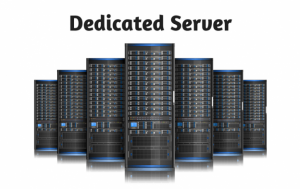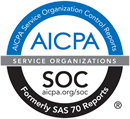Contact Us
- Call Now:(01)773-455-6676
- Sales Email:sales@dedicatedhosting4u.com
- Support Email:support@dedicatedhosting4u.com
- Billing Email:billing@dedicatedhosting4u.com
Close Support
Dedicated Server Hosting Still Leads Other Hosting Options ?
Dedicated Server Hosting Still Leads Other Hosting Options ?
Selecting hosting platform is a big decision as it’s going to impact performance, time and money of your business. This article will guide you in selecting best hosting medium with the help of brief discussion. Dedicated server hosting offers the resources and capabilities of an entire server, not shared with anyone else.When you share a server with other hosting clients, you run the risk of not having access to the bandwidth or memory you need because other people’s websites are using it all up. Even with a VPS server, your site can still crash because it doesn’t necessarily have access to all the resources it needs to stay online, especially when it’s bombarded with traffic.
Which type of hosting we should opt for either VPS or Dedicated Server Hosting?
Generally hosting is divided into 4 General Types:
- Shared hosting
- Virtual private servers (VPS)
- Managed hosting
- Dedicated servers
Though Shared hosting plans have lowest price but their performance and customize are not well which leads to serious problem for those who need performance and speed thus for the hosting needs people go for other options.
Now in other case also there are many options for people who want to choose between virtual private servers (VPS) and dedicated server hosting.
Dedicated server hosting
Dedicated hosting is the fastest and the most powerful of all, which can prove it’s worth by performance.
When we share a server with others, there are a lot of things we can’t control. Dedicated server hosting allows you as much controlled environment that you need for your growing business. It manages everything so that we can focus on our work instead of busy with debugging and fixing issues related to server.
environment that you need for your growing business. It manages everything so that we can focus on our work instead of busy with debugging and fixing issues related to server.
Advantages of dedicated servers
- It is completely under the control of the customer thus the customers able to reboot it whenever it is needed.
- It does not have limits to what can be installed in terms of resource allocation as in VPS and other hosting methods.
- In dedicated server hosting resources access is given to single customer it is not shared between customers as in VPS.
- Dedicated hosting is reliable and highly secure.
- Its highly beneficial for those who are planning on hosting e-commerce solutions or planning on monetizing their websites.
Virtual Private Servers
Virtual Private Server (VPS) hosting is similar to virtual reality in that it seems like you’re in your own small universe. Multiple websites share the resources available on a single physical server, comparable to shared hosting. The distinction between dedicated and VPS hosting, on the other hand, is the restriction on who may utilize the resources.
A hypervisor, or software intended to generate distinct virtual computers on the server, is used by the web host. This strong isolation keeps you safe from your neighbors while yet giving you access to a “shared” pool of resources (keep in mind, however, that the server is likely to be more powerful and less “crowded” than one used for shared hosting).
Furthermore, resource distribution is evenly distributed, and no website may take advantage of the resources of another (and vice versa). Consider it similar to buying an apartment. Everyone can personalize their home, but they can’t pull down walls and take over their neighbor’s living room.
They are hard to use for customers than dedicated server hosting, as they are shared between many user unlike that of dedicated server hosting where one user have all the access.
VPS solutions almost always offer a minimum allocation of resources that is decided between customer and provider.
VPS uses the Cloud Computing technology that means the data is stored on the virtual machine which is known as cloud on which customer have sole access thus it is beneficial.
Decision making
Thus before choosing any hosting server we must see the best thing so that it can give worth to our money invested. We must see the performance, compatibility and quality before choosing any one of them.
It’s All Yours When It Comes to Dedicated Servers
Dedicated servers are servers that are solely dedicated to servicing your blog, as the name indicates (and your blog alone). You’re given an empty server and free reign to do whatever you want with it.
In general, web providers will provide you with a variety of physical server configurations from which to pick, however some will allow you to custom-build a server to your exact specifications.
A dedicated server stands in stark contrast to a shared plan (where you have little to no control over your server environment) or a virtual private server (VPS) (where you have some control over your environment, but there are still limitations placed by your web hosting provider). You have complete control over the software that is installed on your server, just as you have over the hardware.
How Do VPS Hosting and Dedicated Servers Compare?
VPS hosting solutions and dedicated servers have a lot of similarities.
Both alternatives provide you more control over your hosting environment, especially when it comes to the applications you use. Both alternatives provide you the option of obtaining the hardware specifications that you want.
A VPS plan may be thought of as a lighter version of a dedicated server, albeit this analogy is oversimplified. A VPS plan is set up similarly to a shared plan, but it functions as a dedicated server. A VPS plan allows you to try out the most expensive hosting option, a dedicated server, without having to pay for it.
Cost
It should come as no surprise that VPS plans are less expensive than dedicated servers. When a web host can accommodate multiple customers on a single server, each customer pays less.
We’ve seen VPS hosting packages for as little as a few dollars per month all the way up to high-end solutions costing more than $175 a month.
Extremely low-cost dedicated servers can cost as little as $30 or $40 per month, while a more reasonable price for a good service is approximately $100 per month (with the sky being the limit).
Managed vs. unmanaged options
The time and effort required to set up, configure, administer, and maintain your web hosting environment are not included in the foregoing descriptions of VPS plans and dedicated servers.
At one end of the spectrum are completely unmanaged plans, where you control the majority of the server’s software (in the case of a VPS plan, the host will provision your virtual machine and leave the rest to you).
Fully managed plans are on the other end of the spectrum, where the web host takes care of practically everything for you — you decide what you need or want, and the web host’s team takes care of having it all installed, established, and maintained.
The majority of web hosts lie somewhere in the middle of these two extremes. To find out exactly what the web hosts you’re interested in have to offer, you’ll need to chat with them (and what they do not). Managed hosts do not all function in the same way or provide the same services.
You’ll need to examine your budget as well as how much of these administrative activities you want to do on your own (as well as what you’re comfortable performing). There is no set price for managed services, although they do have a price (sometimes considerably so).
The concept of hosting your website across a network of linked servers rather than on a single server is known as cloud hosting. While this is expensive, the benefits include many redundancies in the event that a single server fails, as well as easy scaling. Large corporations and online applications, rather than bloggers or e-commerce sites, choose these plans.
Contrary to its name, semi-dedicated hosting is most frequently a shared hosting plan that is hosted on a server that is far more powerful than the most basic choice. But don’t be fooled: this isn’t the same as dedicated hosting.
Other Hosting Types Shouldn’t Be Misunderstood
You could discover that some hosts provide alternate hosting options. Although they may appear to be comparable to VPS or dedicated solutions, they are not.
The concept of hosting your website across a network of linked servers rather than on a single server is known as cloud hosting. While this is expensive, the benefits include many redundancies in the event that a single server fails, as well as easy scaling. Large corporations and online applications, rather than bloggers or e-commerce sites, choose these plans.
Contrary to its name, semi-dedicated hosting is most frequently a shared hosting plan that is hosted on a server that is far more powerful than the most basic choice. But don’t be fooled: this isn’t the same as dedicated hosting.
If… you should go with a VPS hosting plan.
Your blog is expanding, and you need more hosting, but the cost is a key consideration.
You’re technically competent, but not very so (and managed services aren’t in the cards).
You require greater resources, but not to the point that a complete server is required.
A Dedicated Server is the best option for you. If…
For your website, you need the best of the best — you want to maximize RAM, support a large number of visitors, and host a resource-intensive website (think lots of videos and high-resolution images).
You require the most secure hosting available.
You have unique requirements that would be best served by a custom-built hosting environment, such as app development or other (non-blogging) scenarios.
Conclusion:
For most bloggers, a VPS is the most cost-effective way to upgrade from shared hosting. (However, we urge that you check at managed WordPress options as well.)
VPS and dedicated hosting plans are pricey, but they provide unrivalled value for bloggers who have outgrown their shared hosting plans. You get what you pay for, so go for the more costly options if you want better performance and security.




